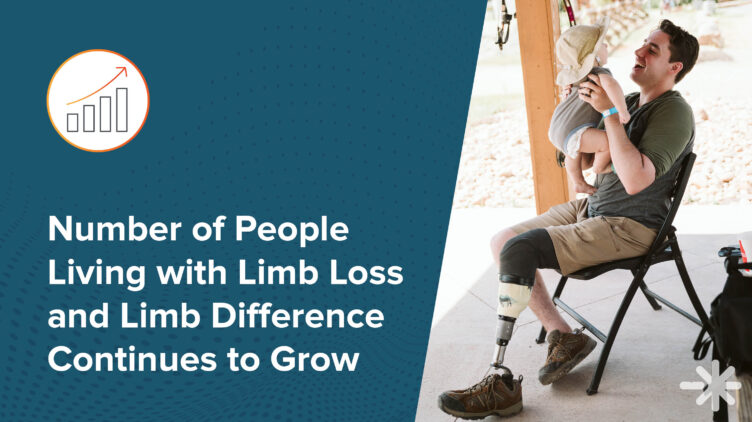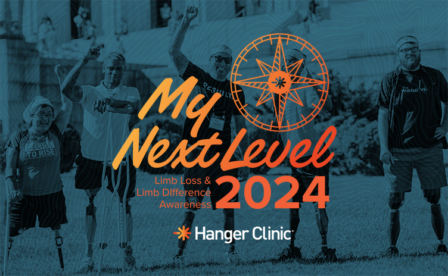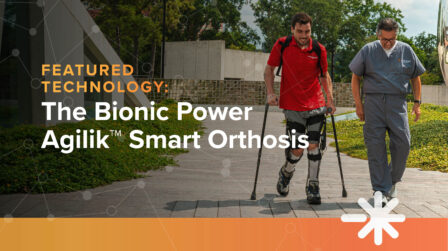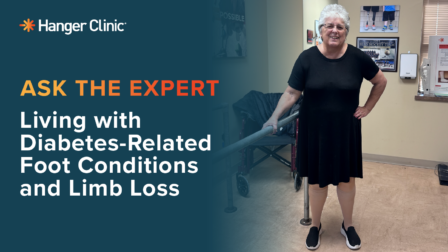Number of People Living with Limb Loss and Limb Difference Continues to Grow

During Limb Loss and Limb Difference Awareness Month (LLLDAM), we recognize why research and understanding the number of people living with limb loss and limb difference is critical to supporting awareness, technological advancements, necessary funding, and resource allocation.
A recent study commissioned by the Amputee Coalition underscores the importance of understanding the prevalence and demographic characteristics of limb loss and limb difference. We uncovered why this research is so critical and how it can be leveraged for future innovation, policy change, and advocacy.
April is Limb Loss and Limb Difference Awareness Month (LLLDAM)
Limb loss and limb difference affects millions of people across the world. In recognition of LLLDAM, Hanger Clinic launched the #MyNextLevel24 campaign to empower people with limb loss and limb difference to embrace the “Next Level” in their lives.

Why is it important to know how many people live with limb loss and limb difference?
Knowing the number of people living with limb loss and limb difference is important for several reasons.
- Resource Allocation: Understanding the number of people living with limb loss and limb difference helps healthcare systems and policymakers allocate resources effectively. This includes funding for orthotic and prosthetic devices, rehabilitation services, and specialized healthcare providers.
- Healthcare Planning: Healthcare providers need accurate data to plan and deliver appropriate care and support services. This includes ensuring access to specialized care, rehabilitation services, and assistive devices for people with limb loss and limb difference.
- Research Prioritization: Knowing the prevalence of limb loss and limb difference can inform research priorities. Researchers can focus on understanding the causes, risk factors, and treatments to advance technology and therapies.
- Prevention and Early Intervention: Studies can shed light on the underlying causes of limb loss and limb difference, including risk factors such as diabetes, vascular disease, and trauma. This knowledge can help to establish preventive measures and early intervention strategies to lessen the occurrence or progression of these conditions.
- Advocacy and Awareness: Awareness of the number of people living with limb loss can help advocacy groups and organizations raise awareness of the challenges faced by individuals with limb loss. It can also help advocate for policies and programs that support their needs.
- Policy Development: Research findings on limb loss and limb difference can inform policymaking at the local, national, and international levels. This includes advocating for policies that support accessibility, affordability, and equity in healthcare services and assistive devices. Learn more about the So Everybody Can Move campaign and their work to change policy and increase coverage.
- Quality of Life: Knowing the prevalence of limb loss and limb difference helps society understand the scope of the issue and the physical, psychological, and social impacts on a person’s quality of life. This understanding can lead to increased empathy, support, and inclusion.
Amputee Coalition Commissions Prevalence Study
The Amputee Coalition’s newly commissioned study, Prevalence of Limb Loss and Limb Difference in the United States: Implications for Public Policy, has just been published. Through collaboration with Avalere, a US-based healthcare consulting firm, the Amputee Coalition conducted an analysis of insurance claims data to estimate the number of people currently living with limb loss and limb difference. This study highlights the importance of understanding the prevalence and demographic characteristics of limb loss and limb difference for effective healthcare, access to affordable assistive devices, rehabilitation programs, support services, and economic policy and programs.
Hanger’s Commitment to Research
In partnership with leading researchers and professionals, the Hanger Institute for Clinical Research and Education is dedicated to advancing clinical practice and improving patient outcomes through ongoing, leading-edge research, evidence-based care, and quality education. Research findings are continuously integrated into Hanger Clinic and shared throughout the orthotic and prosthetic community to improve patients’ quality of life.
Request a Free Evaluation
If you or someone you love is looking for personalized prosthetic care, get in touch with a board-certified prosthetist at a Hanger Clinic near you.
1. Amputee Coalition. Limb Loss and Limb Difference Awareness Month. Accessed April 1, 2024.
Latest Updates
Subscribe to stay up-to-date on our latest posts.


